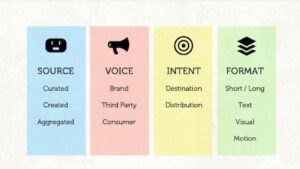In the ever-evolving world of marketing, brand storytelling has emerged as a powerful tool for connecting with audiences on a deeper level. By weaving narratives that resonate with consumers’ emotions and values, brands can transform their identities from mere products to relatable entities. This approach not only captivates attention but also fosters loyalty and trust, essential elements in a competitive marketplace.
Brand Storytelling Examples

Apple exemplifies iconic brand storytelling by focusing on innovation and simplicity. Its narrative showcases groundbreaking technology and sleek design, resonating with users seeking cutting-edge products. Apple’s storytelling underscores its core values and inspires a loyal customer base.
Nike employs storytelling that emphasizes inspiration and empowerment. Through its “Just Do It” campaigns, it highlights athletes’ journeys, setbacks, and achievements. This narrative motivates audiences while reinforcing Nike’s brand identity rooted in determination and perseverance.
Coca-Cola utilizes storytelling that centers on happiness and togetherness. Its campaigns often feature shared moments in familiar settings, which evoke emotions associated with friendship and unity. Coca-Cola’s storytelling strategy aims to create positive associations, reinforcing its brand as a symbol of joy.
Airbnb elevates storytelling by showcasing personal traveler experiences. Its approach allows users to share unique stays and local adventures. This creates relatable narratives, positioning Airbnb as an enabler of authentic travel experiences and strengthening its brand connection with global audiences.
Understanding Brand Storytelling

Brand storytelling creates a compelling narrative that connects a business to its audience. Unlike traditional marketing tactics, effective brand storytelling focuses on the emotional core, drawing consumers into the brand’s world. This technique positions brands as dynamic figures with meaningful stories. In fast-paced markets, a well-articulated story can elevate customer engagement and foster brand loyalty.
A brand’s story isn’t just about the product or service but the values and experiences it shares with its community. Apple, Nike, Coca-Cola, and Airbnb utilize brand storytelling to communicate their core values and missions. Each brand’s narrative highlights distinct elements that resonate emotionally, ensuring their stories stay relevant.
Integrating brand storytelling into marketing strategies isn’t just beneficial; it’s essential for differentiation. As audiences seek authentic and relatable brands, understanding the mechanics of brand storytelling offers a strategic advantage. Brands become more than mere products—they become experiences, fostering lasting connections.
Importance of Storytelling in Branding

Storytelling in branding plays a vital role by creating a strong emotional connection between brands and consumers. This method fosters a unique identity, differentiating brands in crowded markets. When a brand shares compelling stories, it captivates audiences and enhances engagement. It elevates ordinary products into tokens of shared experiences and values, resonating deeply with consumers.
Stories instill trust, making storytelling in branding crucial for building reliable relationships with audiences. Brands like Nike and Apple use storytelling to communicate their ethos, driving not just purchases but loyalty. Through storytelling, they consistently reinforce their core message and mission.
Effective storytelling in branding allows brands to transcend traditional marketing, embodying vision and purpose. As consumers increasingly value authentic interactions, storytelling becomes an essential strategy. It enables brands to weave narratives that humanize their identity, creating memorable and meaningful consumer experiences. Leveraging the power of storytelling shifts brand perception from static entities to rich stories woven into consumers’ lives.
Emerging Brand Storytelling Strategies
Brands are now exploring innovative storytelling techniques to deepen their connection with audiences. Interactive content, such as virtual reality experiences and social media engagement, allows consumers to become active participants in brand narratives. This approach not only enhances engagement but also fosters a sense of community and belonging.
As technology evolves, brands are increasingly utilizing data-driven insights to tailor their storytelling efforts. Personalized narratives that reflect consumer preferences and behaviors create more meaningful interactions and elevate brand loyalty.
Ultimately, embracing these emerging strategies ensures that brands remain relevant and impactful in a rapidly changing marketplace. By focusing on authenticity and emotional resonance, brands can craft compelling stories that not only captivate but also inspire and empower their audiences.



